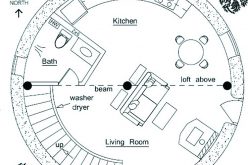As Fayetteville wraps up the Compassion Games this week, and our community revels in the compassionate acts recorded from the past several days, hopefully we can all be thankful that at least one action has touched our lives or that we’ve made the world a better place during the Games. However, there’s a slight psychological danger to making ripples.
That danger is “moral licensing,” or the idea that one’s self-perception of being a good person will make one less inclined to perform good actions in the future. In a 2010 article by Stanford University, researchers stated that “past good deeds can liberate individuals to engage in behaviors that are immoral, unethical, or otherwise problematic, behaviors that they would otherwise avoid for fear of feeling or appearing immoral.”
The article covers results from a recent experiment demonstrating the effects of moral licensing in regards to green or sustainable behaviors. Participants were given two tasks. The first was to select a product (either green or conventional). The second was to take the right amount of money out of an envelope when no one was watching them.
“People who had previously purchased a green product were significantly more likely to both lie and steal than those who had purchased the conventional product. Their demonstration of ethical behavior subconsciously gave them license to act unethically when the chance arose,” explains William MacAskill, founder of 80,000 Hours. “The explanation behind moral licensing is that people are often more concerned about looking good or feeling good rather than doing good. If you ‘do your bit’ by buying an energy-efficient light bulb, then your status as a good human being is less likely to be called into question if you subsequently steal. Amazingly, even just saying that you’d do something good can cause the moral self-licensing effect.”
And if you’re reading this thinking that you would never fall into a moral licensing moment like the study suggests, well, you might be right! Perhaps the antidote to this behavioral virus is sheer awareness that it exists. I found myself more reflective after reviewing the research and realizing that my first compassionate or green action might make the second or one hundredth good deed more difficult. By implementing a rule of ripples – that is, if I take one action, I start planning another action immediately afterwards in order to magnify my ripple effect – I can hopefully avoid any apathy or inaction later. Only future research will show if this and other tactics are effective at promoting continuously compassionate behavior.
Even though research demonstrates that a single good deed doesn’t always beget another good deed, it doesn’t take away the positive value of our singular actions. So while taking one action to make the world a better place doesn’t mean you can become inactive forever, it does mean you can pat yourself on the back and keep going.
Ripples is an emerging online educational center inspired by a holistic approach to making a difference. Follow our journey to live sustainably and make ripples with our lifestyle at: www.RipplesBlog.org.











